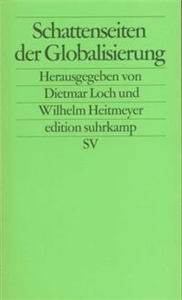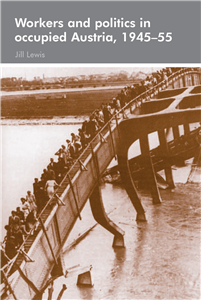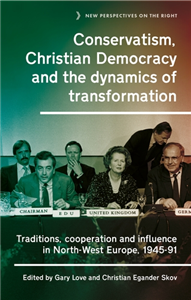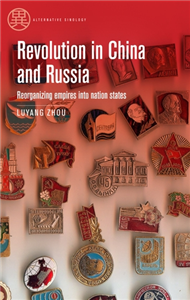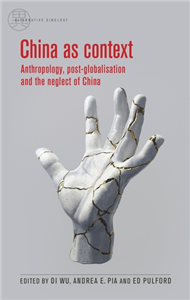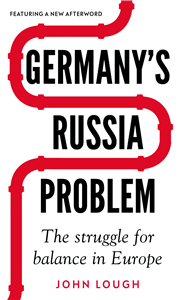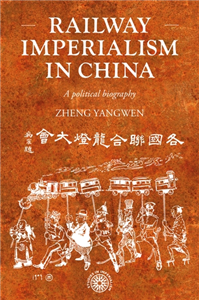Your Search Results
-
Promoted Content
-
Promoted ContentJanuary 2001
Schattenseiten der Globalisierung
Rechtsradikalismus, Rechtspopulismus und separatistischer Regionalismus in westlichen Demokratien
by Dietmar Loch, Wilhelm Heitmeyer, Alain Touraine, Klaus Dörre, Helmuth Berking, Michael Zürn, Georg Stauth, Hans-Georg Betz, Pascal Perrineau, Peter A. Ulram, Michael Kazin, Roberto Biorcio, Detlef Oesterreich, Michael Vester, Ursula Birsl, Peter Lösche, Michael Bös, Volker M. Heins, Herbert Kitschelt, Claus Leggewie, Dietmar Loch, Wilhelm Heitmeyer, Dietmar Loch, Wilhelm Heitmeyer
In diesem Band geht es um den Zusammenhang zwischen einerseits der Globalisierung und andererseits dem Rechtsradikalismus, dem Rechtspopulismus sowie dem separatistischen Regionalismus in den westlichen Demokratien. Vor dem Hintergrund, dass die Weichen für die politischen Katastrophen im 20. Jahrhundert durch die gesellschaftlichen Umbrüche im 19.Jahrhunden gestellt worden sind, sollen diese Schattenseiten der Globalisierung näher beleuchtet werden. Die internationalen Beiträge analysieren die ökonomischen, kulturellen und politischen Globalisierungs- sowie Fragmentierungsprozesse, untersuchen in Fallbeispielen die autoritären Entwicklungen in Europa und den USA und fragen abschließend nach deren Zukunftschancen in der nationalstaatlich verfassten Demokratie.
-
 Trusted Partner
Humanities & Social SciencesJanuary 2015
Trusted Partner
Humanities & Social SciencesJanuary 2015Workers and politics in occupied Austria, 1945–55
by Jill Lewis
In March 1946 Winston Churchill warned the world about the 'Iron Curtain' that had descended across Europe and behind which now lay, he said, the eight capitals of the ancient states of central and Eastern Europe. In fact, one of these eight, Vienna, escaped absorption into the Soviet bloc. Between 1945 and 1955, Austria and its capital were occupied by the Four (increasingly mutually antagonistic) Allied Powers. During this decade of confusion, insecurity, suspicion and fear, and confronted by poverty and the threat of famine, Austria's political and economic elites joined forces to promote a culture of political unity and harmony from which eventually emerged the Austrian model of corporatism, commonly referred to as the Social Partnership. This book sets the social and economic difficulties that Austria encountered in this crucial decade in their international context and examines how they were contained. The author also discusses the long-term implications of the Austrian culture of consensus, not only for the way in which the country dealt with its recent past, but also for present-day political developments. A remarkable study that will be essential reading for students and scholars of twentieth-century European history. ;
-
 Trusted Partner
Humanities & Social SciencesMarch 2017
Trusted Partner
Humanities & Social SciencesMarch 2017Imperial cities
Landscape, display and identity
by Felix Driver, David Gilbert
Imperial cities explores the influence of imperialism in the landscapes of modern European cities including London, Paris, Rome, Vienna, Marseilles, Glasgow and Seville. Examines large-scale architectural schemes and monuments, including the Queen Victoria Memorial in London and the Vittoriano in Rome. Focuses on imperial display throughout the city, from spectacular exhibitions and ceremonies, to more private displays of empire in suburban gardens. Cconsiders the changing cultural and political identities in the imperial city, looking particularly at nationalism, masculinity and anti-imperialism.
-
 Trusted Partner
October 2015
Trusted Partner
October 2015Gelassen bleiben, Baby
Coole Tipps für ruhige Eltern
by Vienna, David / Englisch Wais, Johanna
-
 Trusted Partner
May 2005
Trusted Partner
May 2005Bank Austria Creditanstalt
150 Jahre österreichische Bankengeschichte im Zentrum Europas
by Herausgegeben von Rathkolb, Oliver; Herausgegeben von Venus, Theodor; Herausgegeben von Zimmerl, Ulrike
-
 Trusted Partner
Trusted Partner
-
 Trusted Partner
November 2005
Trusted Partner
November 2005The 100 Classic Dishes of Austria
Perlenreihe
by Herausgegeben von Plachutta, Ewald; Herausgegeben von Wagner, Christoph
-
 Trusted Partner
October 2012
Trusted Partner
October 2012Language Attitudes in England and Austria
A Sociolinguistic Investigation into Perceptions of High and Low-Prestige Varieties in Manchester and Vienna
by Bellamy, John
-
 Trusted Partner
Humanities & Social SciencesJanuary 2021
Trusted Partner
Humanities & Social SciencesJanuary 2021Vienna’s ‘respectable’ antisemites
by Michael Carter-Sinclair
-
 Trusted Partner
Humanities & Social SciencesJuly 2025
Trusted Partner
Humanities & Social SciencesJuly 2025Conservatism, Christian Democracy and the dynamics of transformation
Traditions, cooperation and influence in North-West Europe, 1945-91
by Gary Love, Christian Egander Skov
Conservatism, Christian Democracy, and the Dynamics of Transformation compares the centre-right political traditions of Britain, the Nordic countries, France, West Germany, and Austria and looks for evidence of political cooperation and influence across borders during the period 1945-90. The book explores howa variety of intellectuals, politicians, and political parties transformed their politics in response to major economic, social, and political challenges and seeks to explain why conservatives and Christian democrats came to feel that they belonged to a wider centre-right political family by the end of this period. It also examines why these political traditions found it difficult to cooperate with each other after the Second World War and why they decided to invest more political capital in inter-party relations and wider transnational projects from the 1960s. As the book shows, these developments resulted in two new centre-right internationals: the European Democrat Union and the International Democrat Union.
-
 Trusted Partner
Trusted Partner
-
 Trusted Partner
Humanities & Social SciencesJune 2025
Trusted Partner
Humanities & Social SciencesJune 2025Revolution in China and Russia
Reorganizing empires into nation states
by Luyang Zhou
Most scholars believe that China's nationality policy, like that of other socialist states, imitated the Soviet nationality model, a system which has been termed an "affirmative action empire." This book offers two contributions to the literature which run counter to this convention. First, it argues that the People's Republic of China (PRC) and the Soviet Union (USSR) were different; while the PRC was aimed to build an ideal-typical nation-state, the USSR was an open union of nation-states that was only temporarily confined to a physical territory. Second, while scholars who have noted this difference attribute it to contextual factors, such as ethnic structure, geopolitical status, and Russia's intervention into the Chinese Revolution, this book contends that context shaped the Sino-Soviet difference, yet it did not determine it. Rather, there was significant leeway between the implications of the contextual factors, and what the policy-designers ultimately established. This book probes who held agency, and how these individuals bridged this gap.
-
 Trusted Partner
Humanities & Social SciencesSeptember 2025
Trusted Partner
Humanities & Social SciencesSeptember 2025China as context
Anthropology, post-globalisation and the neglect of China
by Di Wu, Andrea E. Pia, Ed Pulford
Decades-old calls to promote the significance of China for anthropological theory and the social sciences more generally ring more urgently today given China's importance to social, political and economic life globally. Yet Chinese-grounded ideas remain marginal to the discipline, and scholarly discussions retain a sense of China as an 'Other' apart from the 'real' world, and thus unsuitable or generating widely applicable theoretical ideas. Inspired by East Asian postcolonial scholarship, this volume tackles this unsettling situation head-on, arguing that without taking China seriously as a powerful agent, a locus of knowledge production, and a new discursive topos of an emerging post-global imaginary, anthropologists and other social scientists may fail to adequately analyse the global present and make sense of both the material and immaterial forces that animate it, wherever and however they work. Amid the end of Western globalisation and shifting anthropological understandings of relations between ethnography and theory, we show how 'China' must be understood as the ordinary 'context' for anthropological research practices worldwide.
-
 Trusted Partner
2024
Trusted Partner
2024Where is Russia Heading?
by Jens Siegert
Vladimir Putin has been ruling Russia for 25 years. There is no end in sight to his dictatorship. He relies on repression at home and is waging a war of destruction against a neighbouring country. The conflict with the West has long become a systemic conflict between an illiberal-autocratic ideology and liberal-democratic principles. Nothing will change as long as Putin remains in power. Nevertheless, as far as can be ascertained under unfree conditions, the majority of the population seems to be supporting Putin. Does this mean that too many people in Russia do not want democracy or peace? Will everything remain the same after Putin? Or is there a chance that Russia will eventually take a different, more democratic path? Whatever the outcome of the war in Ukraine, Russia is not going to disappear. We will still have to deal with our big neighbour in the east. This makes it all the more important to focus on longer-term developments. As a recognised expert on Russian history and society, the author outlines what the post-Putin era might look like. His in-depth analysis makes it clear that Russia is partly Putin, but Putin is not everything about Russia.
-
 Trusted Partner
Humanities & Social SciencesOctober 2021
Trusted Partner
Humanities & Social SciencesOctober 2021Ireland and the European Union
Economic, political and social crises
by Michael Holmes, Kathryn Simpson, Dimitris Papadimitriou, Kathryn Simpson, Paul Tobin
This book examines how Ireland's relationship with the EU was affected by a succession of crises in both the Republic of Ireland and Northern Ireland. The financial crisis, the Brexit crisis and the migration crisis were not of equal significance on the island of Ireland. The financial crisis was a huge issue for the Republic but not Northern Ireland, Brexit had a major impact in both polities, the migration and populism issues were less controversial, while foreign policy challenges had a minimal impact. The book provides a summary of the main features of each of the crises to be considered, from both the EU and the Irish perspective. Ireland and the European Union is the first volume of its kind to provide a comprehensive analysis on British-Irish relations in the context of Brexit. It assesses the Withdrawal Agreement and Protocol on Ireland/Northern Ireland, the devolution settlement and the 1998 Agreement, as well as the European dimension to Northern Ireland's peace process. The contributors explore a number of policy areas that are central to the understanding of each of the crises and the impact of each for Ireland. Chapters examine issues such as security, migration and taxation as well as protest politics, political parties, the media, public opinion and the economic impact of each of these crises on Ireland's relationship with the EU.
-
 Trusted Partner
Humanities & Social SciencesOctober 2022
Trusted Partner
Humanities & Social SciencesOctober 2022Germany's Russia problem
The struggle for balance in Europe
by John Lough
The relationship between Germany and Russia is Europe's most important link with the largest country on the continent. But despite Germany's unparalleled knowledge and historical experience, its policymakers struggle to accept that Moscow's efforts to rebalance Europe at the cost of the cohesion of the EU and NATO are an attack on Germany's core interests. This book explains the scale of the challenge facing Germany in managing relations with a changing Russia. It analyses how successive German governments from 1991 to 2014 misread Russian intentions, until Angela Merkel sharply recalibrated German and EU policy towards Moscow. The book also examines what lies behind efforts to revise Merkel's bold policy shift, including attitudes inherited from the GDR and the role of Russian influence channels in Germany.
-
 Trusted Partner
Humanities & Social SciencesMarch 2017
Trusted Partner
Humanities & Social SciencesMarch 2017Britain in China
by Robert Bickers
This is a study of Britain's presence in China both at its peak, and during its inter-war dissolution in the face of assertive Chinese nationalism and declining British diplomatic support. Using archival materials from China and records in Britain and the United States, the author paints a portrait of the traders, missionaries, businessmen, diplomats and settlers who constituted "Britain-in-China", challenging our understanding of British imperialism there. Bickers argues that the British presence in China was dominated by urban settlers whose primary allegiance lay not with any grand imperial design, but with their own communities and precarious livelihoods. This brought them into conflict not only with the Chinese population, but with the British imperial government. The book also analyzes the formation and maintenance of settler identities, and then investigates how the British state and its allies brought an end to the reign of freelance, settler imperialism on the China coast. At the same time, other British sectors, missionary and business, renegotiated their own relationship with their Chinese markets and the Chinese state and distanced themselves from the settler British.
-
 Trusted Partner
Humanities & Social SciencesMarch 2023
Trusted Partner
Humanities & Social SciencesMarch 2023Golden Mummies of Egypt
Interpreting identities from the Graeco-Roman period
by Campbell Price, Julia Thorne
Golden Mummies of Egypt presents new insights and a rich perspective on beliefs about the afterlife during an era when Egypt was part of the Greek and Roman worlds (c. 300 BCE-200 CE). This beautifully illustrated book, featuring photography by Julia Thorne, accompanies Manchester Museum's first-ever international touring exhibition. Golden Mummies of Egypt is a visually spectacular exhibition that offers visitors unparalleled access to the museum's outstanding collection of Egyptian and Sudanese objects - one of the largest in the UK.
-
 Trusted Partner
March 2026
Trusted Partner
March 2026Railway imperialism in China
A political biography
by Yangwen Zheng
Railway Imperialism in China: a Political Biography is the first and most comprehensive book on history and politics of all major railways in China from the late Qing to the post-Mao era. It investigates the transformation of railways from a bête noire within discussions about reform to the emblematic "engines for empire" as foreign powers used it to carve outspheres of control and exploit the late Qing, and as an instrument of nation making for Chinese regimes. The book introduces new archival sources and a wide range of secondary materials. Boldly conceived, it situates the making of modern China in the context of British, Russian, German, Japanese, American expansion. It traces China's transformation from a victim of railway imperialism in the Age of Empireto a railway expansionist in the twenty-first century.




